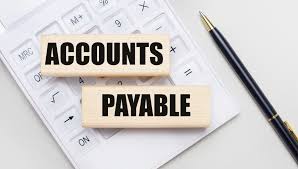The health of any business is closely tied to its financial operations, and at the core of these operations lies the Accounts Payable (AP) department. Considered the financial backbone of a company, AP plays a critical role in managing cash flow and maintaining strong supplier relationships. This article will explore the intricacies of Accounts Payable and explain the AP meaning and how it works, a concept pivotal to the smooth functioning of any business’s financial processes.
Understanding the AP Landscape
Accounts Payable refers to the money owed by a business to its suppliers or creditors. Essentially, it’s the sum of all the invoices a company needs to pay for goods and services received, yet not paid for. In simple terms, AP is the company’s ledger of debt within a certain period, crucial for managing its cash outflow.
The Significance of AP in Business Operations
- Cash Flow Management: Effective AP processes ensure that payments are made on time but also take full advantage of payment terms, thus optimizing cash flow.
- Cost Control: By scrutinizing details of every transaction, the AP department can identify cost-saving opportunities and prevent overpayments.
- Supplier Relationships: Timely payments contribute to healthy supplier relationships, which are essential for business continuity and negotiation of favorable terms.
- Financial Reporting and Forecasting: AP is integral to accurate financial reporting and forecasting, providing insights into future cash requirements.
- Compliance and Fraud Prevention: A robust AP process minimizes the risk of fraud and ensures adherence to financial regulations.
AP Meaning and How it Works: The Process Explained
The process of Accounts Payable begins with the receipt of an invoice and ends with the payment of that invoice. The steps typically include:
- Invoice Receipt: An invoice is received either in paper form or electronically.
- Verification: The details of the invoice are verified against purchase orders or receiving reports.
- Approval: Once verified, the invoice is approved for payment.
- Payment: Payment is processed for the invoice, and records are updated to reflect the payment.
- Reconciliation: Regular reconciliation is performed to ensure all records are accurate and up to date.
FAQs on Accounts Payable
Q: What is meant by ‘AP automation’?
A: AP automation refers to the technology used to streamline and automate Accounts Payable processes, reducing manual work and increasing efficiency.
Q: How can a company improve its AP process?
A: Companies can improve their AP process by adopting AP automation solutions, ensuring accurate data entry, and maintaining good relationships with suppliers for better payment terms.
Q: Is AP just about paying bills?
A: No, AP involves managing debts, cash flow, and internal controls to prevent fraud, making it a complex and vital part of financial operations.
Conclusion
Accounts Payable is much more than just a list of bills to be paid; it’s a strategic finance function that directly impacts a company’s liquidity, relationships, and reputation. Understanding the AP meaning and how it works is essential for any business looking to maintain financial stability and growth. With the right processes and technologies in place, AP can transform from a simple payment ledger into a dynamic tool for financial excellence.

